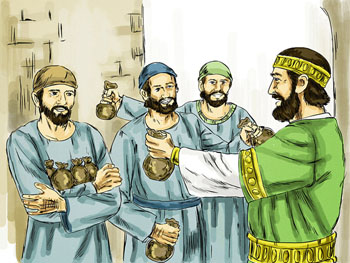Modernism is defined as character or quality of thought, expression, or technique, or a style or movement in the arts that breaks with classical and traditional forms. In the Church, it’s considered a movement toward modifying traditional Judeo-Christian beliefs in alignment with modern ideas.
What modern ideas? News headlines, movies, novels, classrooms and contemporary society in general bombard us daily with more than a few basic concepts of modernism.
It’s modern to commit adultery if both spouses give consent or if the adulterous spouse simply conceals it so that the other spouse’s “feelings” are not hurt.
It’s modern to condone homosexual behaviors because everyone is entitled to love whomever they choose.
It’s modern to celebrate assisted suicide if the person ending their life is making what they believe is a rational, conscientious choice.
It’s modern to enjoy sexual freedom outside marriage as long as the couple loves one another because even Jesus taught that love is the most important thing.
It’s modern to make a choice to be a woman or a man because individualism and feeling good about one’s self is important.
It’s modern to ignore certain religious convictions in the name of compassion, especially for pregnant women who don’t feel like having the child they conceived.
Modernism has given way to moral liberalism, a political philosophy or worldview founded on the ideas of liberty and equality. Moral liberalism agrees that if men can cheat on their wives, so can wives equally cheat on their husbands. If men and women can marry and have children, so can two men or two women marry and enjoy child-raising as well. If a woman becomes pregnant but doesn’t want to give birth it’s okay to procedurally end the pregnancy. The problem is the destruction of virtue.
In society’s quest for tolerance and equality in the name of love and freedom of choice, the things that build character—self-denial and moral courage—are sacrificed. We live in an age when our leaders become role models for compassion as they “modernize” our Constitution and ways of thinking. They convince us that we are being moral without the trials and sacrifices that go along with actually being moral and good. We risk exchanging moral conviction for tribal mentality and exchanging doing what is right for doing what feels good.
At the Stewardship Foundation, we promise never to exchange our original credo of working for the common good and being good stewards of God’s abundance for the temptations of modernism and moral liberalism. We believe that feelings are a poor replacement for decency and common sense. If you agree, we hope you will work with us and share our vision with your friends, family, and colleagues.
 While stewardship is an ethic that embodies the responsible planning and management of resources, the concepts of stewardship can be applied to the environment and nature, economics, health, property, information, theology, etc. At the Stewardship Foundation, we extend this to the protection of human life, religious freedom, and the sanctify of marriage.
While stewardship is an ethic that embodies the responsible planning and management of resources, the concepts of stewardship can be applied to the environment and nature, economics, health, property, information, theology, etc. At the Stewardship Foundation, we extend this to the protection of human life, religious freedom, and the sanctify of marriage.